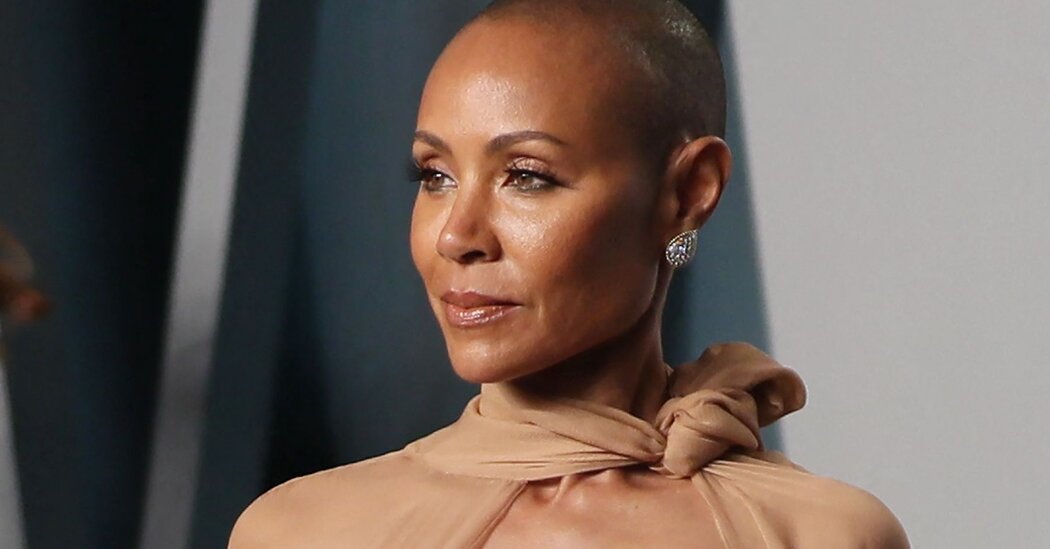
Ms. Pinkett Smith has alopecia, a condition resulting in hair loss that disproportionately affects Black women. It was in poor taste for Mr. Rock to poke fun at her hair. He has reportedly said he did not know about her alopecia, but he probably at least knew that the joke would sting, since he produced the documentary “Good Hair,” about Black women and their often fraught relationships with their hair.
Ms. Pinkett Smith has spoken openly about her struggles with hair loss — which is difficult for anyone but especially hard in the sexist and image-conscious world of American celebrity, where women, especially, endure an endless litany of comments about their appearance, their sartorial choices, their relationships and anything else people can find to pick apart. Famous women such as Whitney Houston, Britney Spears, Amanda Bynes, Janet Jackson, Monica Lewinsky and Meghan Markle have been pushed to the edge by such scrutiny and the unreasonable expectation that they thicken their skin to derision, disrespect, insults and jokes. Even if later, long after these public shamings, their treatment is re-examined and condemned, the measly acts of public contrition are too little, too late. The damage is done.
Violence is always wrong and solves very little. Mr. Smith could have made so many better choices that did not involve putting his hands on another person in front of the entire world. The Academy of Motion Picture Arts and Sciences opened an inquiry into the incident Monday afternoon, and Mr. Smith apologized to Mr. Rock and the world on Monday evening via Instagram.
Still, Mr. Smith most likely saw his wife’s pain, and it’s possible he was himself experiencing a moment of fragility, of thin skin. In his memoir, “Will,” the actor writes about the guilt he felt because, as a child, he could not protect his mother from his father’s abuse. Mr. Rock’s gibe was not in any way the same thing as domestic violence, but I can see how Mr. Smith might not have been able to take that joke, at his wife’s expense, given the layers of context and public and private histories leading into that evening.
I am trying to hold space for all of those layers — Ms. Pinkett Smith’s exhaustion with being a target of humor, Mr. Smith’s series of bad decisions and Mr. Rock’s trying to maintain his composure in the immediate aftermath of being a target of violence. Unfortunately, the incident has become something of a Rorschach test onto which people project their backgrounds, opinions and affinities. And what gets lost in the discourse is that, however disappointing the incident was, it was also a rare moment when a Black woman was publicly defended.
We also witnessed an example, last week, of a woman forced to wear incredibly thick skin as she was left largely undefended. During Judge Ketanji Brown Jackson’s confirmation hearings for the Supreme Court, that distinguished jurist endured all manner of insult, racism and misogyny from Republican senators asking ludicrous questions that were really opportunities for grandstanding. Judge Jackson was applauded in many circles for her calm and composure.
For many Black women, it was a painful spectacle because we know what it is like to experience that kind of scrutiny, interrogation and disrespect in personal and professional settings. We know what it’s like to withstand scrutiny without intervention. We understood that the only way forward for Judge Jackson was to remain composed, stoic, impervious. We also noted that other than Senator Cory Booker, Democrats failed to protect their president’s nominee. The Senate Judiciary Committee apparently valued decorum over Judge Jackson’s dignity.




